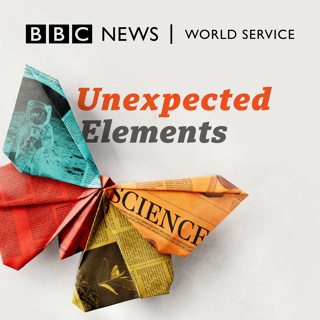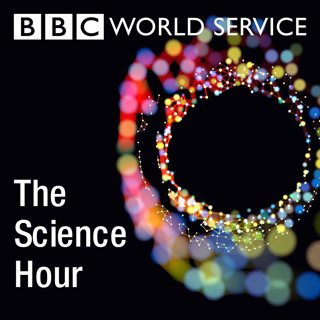
Going home
This week we’re looking at a political agreement that will hand back sovereignty of the Chagos Islands to Mauritius. In the 1970s, the UK removed the entire Chagossian population to make way for a US military base. The islanders have been fighting for their right to return ever since. If deal can be agreed, the islanders are hoping they will have the chance to go home. And this got us thinking about all things home-related. First up, we discover the intriguing reasons why you can’t smell your own home, then we take a closer look at our homes and all the creatures that live there, before finding out about the ‘home scars’ created by limpets. Next we hear from Dr Nadescha Zwerschke, a scientist who spent time on Rothera research station in Antarctica. She reveals how she made this isolated outpost feel like home. Also, we reveal that global talks to agree a reduction in plastics have collapsed, which could have an impact on all our homes from a pollution perspective.And finally – a type of pasta that would be no good for your homecooked recipes. Presenter: Marnie Chesterton, with Tristan Ahtone and Godfred Boafo Producer: Alice Lipscombe-Southwell, with Harrison Lewis and William Hornbrook Sound engineer: Gavin Wong
6 Dec 202449min

Doing a deal
It’s Black Friday! Everyone is camping in the street, staying up all night for the very best deals around. And Unexpected Elements are joining in.We take a look at the huge underground trade of vital resources...not run by criminals but fungi.Then it is onto illegal animal trade and the 300 pets who got a terrible deal, strapped to a man’s chest as he tried to make it through airport security. Have you ever asked a pigeon for advice when gambling? We hear from a professor of psychology about why you should not.And finally, the story of Lee Sedol, the world’s best player of the board game Go, who was challenged by Google to a game worth one million dollars. Presenter: Caroline Steel, with Phillys Mwatee and Christine Yohannes Producers: Emily Knight, Harrison Lewis, Imaan Moin and William Hornbrook Sound engineer: Searle Whittney
29 Nov 202449min

Super Science
Headlines that Canadian uranium deposits could make it a nuclear superpower has the Unexpected Elements team musing on all manner of superpowers. Tardigrades are an obvious candidate – boil them, freeze them, irradiate them in space, these adorable creatures are almost indestructible. We also meet Dr Deep Sea, Joseph Dituri, from the University of South Florida, who lived under water for 100 days and swears by it as a boost for our health. As the leader of the free world goes on an Amazon jungle tour, we talk tiny frogs, giant frogs and radiation tolerant frogs. We also hear how cancer survivors may have a secret superpower and how we’ve co-opted plants superpowers for medicines. Presenter: Marnie Chesterton, with Camilla Mota and Affelia Wibisono Producers: Imaan Moin, Harrison Lewis and Dan Welsh Sound engineer: Gavin Wong
22 Nov 202449min

Are you not entertained?
It’s been 24 years since the release of Ridley Scott’s Gladiator, which left audiences captivated by the story of Maximus the gladiator, played by Russell Crowe. Now, Gladiator II is hitting the cinemas, so this week we enter the arena to take a look at some gladiatorial science.We hear about an angry little fish that fights off its rivals in mouth-to-mouth combat, we discover how humans have looked to nature to design better armour, and we find out about the perfume that Julius Caesar would have worn.We also speak to Dr Chris Nowinski, a former WWE professional wrestler who's now a pioneering neuroscientist. He’s leading some research into how to prevent concussions in sport, and is co-founder of The Concussion Legacy Foundation.That, plus many more Unexpected Elements. Presenter: Marnie Chesterton, with Christine Yohannes and Chhavi Sachdev Producers: Alice Lipscombe-Southwell, Dan Welsh and Imaan Moin Sound engineer: Dyfan Rose
15 Nov 202449min

Supermassive numbers
Russia has fined Google more than two undecillion rubles, which is more than 20 decillion dollars. How much you ask? 20 decillions is a 20 with 33 zeros behind it, more money than there is in the entire world!This unpayable fine inspired us to look at extremely large numbers, from the amount of cells in our body, to infinity hotels and beyond. Plus, two-time world memory champion Jonas von Essen teaches us how to memorise these supermassive numbers.Also, we unpick a dubious influential biodiversity statistic that has no basis whatsoever, and we look at the scientific tools of ghost hunting.Plus, to round it off, presenter Marnie looks at a sport with more possible moves than there are atoms in the Universe. Can you guess what it is?Presenter: Marnie Chesterton with Tristan Ahtone and Candice Bailey. Producer: Florian Bohr with Alice Lipscombe-Southwell and Imaan Moin. Sound engineer: Rhys Morris
8 Nov 202449min

The Swing of Things
On this weekend ahead of the US election, we clock the importance of so-called swing states – and swing into action looking into not politics, but the science of swings.We examine how a pendulum swung by French physicist Foucault demonstrated that the earth is spinning, and hear about how the gibbon became the king of swingers – and what current-day elite climbers can learn from them. We also hear from educator Francis Mavhunga at the University of Eswatini who has regularly used swings in his physics classes, and now shows a new generation of teachers how to integrate children’s lived experiences into the classroom.Plus, how science has revealed new secrets about the ancient silk road, and what your brain can see when your eyes can’t. And, just to swing back to the beginning, presenter Marnie Chesterton digs into the archives to find out if science and tech can provide a foolproof voting system, and how astronauts vote.Presenter: Marnie Chesterton with Chhavi Sachdev and Godfred Boafo Producer: Harrison Lewis with Florian Bohr, Julia Ravey, Dan Welsh and Imaan Moin Sound Engineer: Gareth Tyrrell
1 Nov 202449min

Mystery blobs
White blobs have been appearing on the beaches in Newfoundland, Canada. They’re kind of doughy-looking, and smell of vegetable oil. As yet, officials are not sure what they could be. Of course, this got the Unexpected Elements team intrigued, so we decided to dedicate the programme to the weird world of blobs, slime and bizarre things that wash up onshore. We hear about the fabulous hagfish, which produces copious amounts of snot-like slime to defend itself from predators. But what makes slime so slippery in the first place? And why is ketchup so hard to get out of a bottle? And what makes quicksand so difficult to escape from? It’s all down to fluid dynamics. Professor Daniel Bonn, from the University of Amsterdam, explains the physics behind all these sticky situations.Also this week, we find out more about a shipment of bath toys that tumbled overboard, and how they have helped scientists to decipher ocean currents. Plus, we discover more about the restoration of mangrove forests, how flowers can cause weird dreams, the size of the biggest black forest gateau and a species of plankton and how it floats. Presenter: Marnie Chesterton, with Camilla Mota and Phyllis Mwatee Producer: Emily Knight, with Alice Lipscombe-Southwell, Eliane Glaser and Noa Dowling Sound engineer: Gareth Tyrrell
25 Okt 202449min

TV made me do it
Spoiler alert! At the end of the fourth season of Emily in Paris, the protagonist sets off to go to Rome. In response, the French President Emmanuel Macron has promised that “we will fight hard” to keep Emily in Paris in France. Why does he care so much? A recent study suggests that 38 per cent of all visitors to Paris name the show as one of the reasons for visiting. Inspired by this factoid, we started thinking about the ways in which TV can influence us. We examine how Star Trek inspired mobile phones – and the outfit of one of our panelists. Plus, we find out more about the impact Dana Scully from The X Files had on a generation of girls. And what does psychology say about fandom?But how can science influence the films? We speak to Dr Adam Rutherford, a geneticist, broadcaster, and, importantly, scientific advisor for movies. What does that last role involve? Which films get the science right? And is scientific accuracy important for a Hollywood blockbuster?Also in the programme, we hear about the mysterious recent earthquakes in Ethiopia, and Unexpected Elements listeners with visual impairments get in touch to share the secrets of what they can see inside their heads. And finally, we take a look at the surprising connection between cricket and statistics.Presenter: Marnie Chesterton with Andrada Fiscutean and Christine Yohannes Producer: Florian Bohr with Alice Lipscombe-Southwell and Anna Charalambou Sound engineer: Cath McGhee
18 Okt 202449min





















